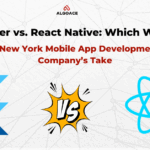
In the current rapidly evolving digital environment, custom application development services are progressively adopting cloud-native technology to maintain their competitive edge and operational efficiency. The transition to cloud-native development has fundamentally altered the methodologies for designing, constructing, and deploying applications, resulting in solutions that are more scalable, resilient, and manageable. This transformation is significantly impacting custom app development, prompting software development company to consistently refine their strategies to incorporate these sophisticated cloud-native features. This article will examine how custom app development services are responding to the emergence of cloud-native applications, emphasizing the advantages and strategies that underpin this transformation.
What Are Cloud-Native Applications?
Cloud-native applications represent a category of software specifically engineered to function within cloud environments. Instead of relying on traditional on-premise infrastructure, these applications take advantage of the inherent flexibility and scalability offered by cloud computing. The fundamental components of cloud-native applications encompass:
- Microservices architecture: Decomposing applications into smaller, loosely connected services to facilitate easier management and scalability.
- Containerization: Encapsulating applications within containers (such as Docker) to ensure uniformity across various environments.
- DevOps and CI/CD: Optimizing development and deployment processes through continuous integration and continuous delivery pipelines.
- Scalability and Resilience: Enabling on-demand scaling and minimizing downtime by utilizing cloud infrastructure.
The transition to cloud-native applications has provided software development company with the opportunity to improve their custom application development services and deliver robust, future-oriented solutions.
The Role of Custom App Development Services in the Cloud-Native Era
With the increasing demand for cloud-native applications, custom application development services are adapting to address these requirements. Software development company are adopting innovative methodologies and utilizing advanced tools and platforms to create cloud-native applications, allowing businesses to maintain agility, competitiveness, and responsiveness.
1. Incorporating Microservices Architecture
The adoption of cloud-native technologies has led to a notable transformation in custom app development services, particularly through the integration of microservices architecture. In contrast to conventional monolithic applications, microservices decompose a large application into smaller, independent units, each designated to perform a specific function. This approach enables teams to focus on individual components without affecting the overall application.
Benefits of Microservices in Custom App Development
- Adaptability: Each microservice can be created, launched, and scaled on its own, facilitating the process of updating or enhancing particular components of an application.
- Improved Reliability: The failure of a single microservice does not compromise the entire application, thereby enhancing overall stability.
- Accelerated Time-to-Market: Smaller teams can collaborate on various services at the same time, shortening development cycles and allowing for faster feature deployments.
Through the adoption of microservices, custom application development services are transforming applications into more modular and flexible systems, addressing the demands of contemporary businesses.
2. Utilizing Containers and Kubernetes for Portability and Consistency
Containerization, utilizing tools such as Docker, has emerged as a fundamental component in cloud-native development. Containers encapsulate application code along with its dependencies, guaranteeing uniform performance across various environments. Kubernetes, a tool for container orchestration, streamlines the deployment, scaling, and management of these containers, thereby enhancing control and operational efficiency.
Why Containers Matter in Custom App Development Services
- Uniformity Across Environments: Containers enable developers to bundle applications along with all required dependencies, ensuring they operate identically in development, testing, and production settings.
- Enhanced Scalability: Containers can be effortlessly adjusted in size according to demand, thereby maximizing resource efficiency and minimizing costs.
- Streamlined Deployment: Containers facilitate deployment by permitting applications to transition between environments without encountering compatibility challenges.
By utilizing containers and Kubernetes, software development company deliver more dependable, portable, and scalable solutions to their clients.
3. Adopting DevOps and CI/CD for Agile Development
Cloud-native applications excel in dynamic environments, making DevOps practices particularly suitable. The implementation of Continuous Integration and Continuous Deployment (CI/CD) pipelines enhances efficiency, facilitating quicker releases with reduced manual effort. Custom application development services are progressively integrating CI/CD pipelines to automate testing, deployment, and updates, thereby ensuring that applications remain current and aligned with user requirements.
Benefits of DevOps and CI/CD in Custom App Development
- Speed and Efficiency: The automation of deployment processes significantly conserves time, enabling development teams to implement updates with greater frequency.
- Minimized Errors: The integration of automated testing in the CI/CD pipeline identifies problems at an early stage, thereby decreasing the occurrence of bugs and enhancing the overall user experience.
- Improved Collaboration: DevOps methodologies foster collaboration between development and operations teams, resulting in a more unified team dynamic.
This strategy empowers software development company to respond effectively to the rapid demands of cloud-native applications while upholding exceptional standards of quality and speed.
4. Improving Security and Compliance
Security continues to be a paramount concern for software development company that offer custom application development services. Cloud-native applications encounter distinct security issues stemming from the decentralized architecture of microservices and the regular exchange of data among these services. In response to these challenges, custom app development services are incorporating security protocols directly into the development process, a practice referred to as DevSecOps, to guarantee data security and adherence to regulatory standards.
Key Security Measures for Cloud-Native Applications
- Identity and Access Management (IAM): Guaranteeing that only permitted users and applications can access designated microservices.
- Network Segmentation: Safeguarding sensitive information through the division of networks and the regulation of traffic among microservices.
- Encryption and Data Protection: Implementing encryption for data both in storage and during transmission to defend against unauthorized access.
Through the integration of comprehensive security measures, custom application development services ensure that cloud-native applications are maintained in a secure and compliant manner.
5. Leveraging Cloud Service Providers for Scalability and Cost Efficiency
Prominent cloud service providers, including AWS, Google Cloud, and Microsoft Azure, present sophisticated tools and services specifically designed for cloud-native applications. These providers supply platforms and infrastructure that facilitate the development of customized applications, ensuring that clients receive scalable, adaptable, and economically efficient solutions.
Advantages of Cloud Providers in Custom App Development
- Dynamic Scalability: Applications can automatically adjust their scale in response to varying traffic levels, thereby enhancing both performance and cost efficiency.
- Flexible Pricing Model: Cloud service providers present adaptable pricing structures, enabling organizations to pay solely for the resources they consume.
- Integrated Tools: Cloud service providers include a comprehensive array of tools for analytics, security, artificial intelligence integration, and additional functionalities, which contribute to improved application performance.
By partnering with cloud service providers, software development company can develop resilient cloud-native applications that are manageable and scalable.
Benefits of Cloud-Native Custom App Development Services
The transition to cloud-native applications offers numerous benefits for companies pursuing tailored app development services. These advantages not only optimize the development workflow but also improve the application’s functionality, durability, and sustainability.
1. Enhanced Flexibility and Speed
The transition to cloud-native applications offers numerous benefits for companies pursuing tailored app development services. These advantages not only optimize the development workflow but also improve the application’s functionality, durability, and sustainability.
2. Improved Scalability
Cloud-native applications are engineered to scale effortlessly in response to demand, enabling organizations to manage varying traffic levels without encountering performance challenges. This capability for scalability is especially advantageous for businesses undergoing rapid expansion or facing seasonal surges in traffic.
3. Reduced Downtime and Enhanced Resilience
The decentralized architecture of cloud-native applications enhances their resilience. By allocating services across various nodes, custom application development services can guarantee that the application remains operational even if one service encounters a failure, thereby minimizing expensive downtime.
4. Cost Efficiency
Through the pay-as-you-go model provided by cloud service providers, organizations are able to pay solely for the resources they utilize, thereby minimizing infrastructure expenses. Tailored application development services take advantage of this model to deliver economical solutions that are in line with the financial limitations of clients.
5. Future-Proofing Applications
Through the implementation of cloud-native principles, software development company assist clients in safeguarding the longevity of their applications. This strategy allows organizations to remain responsive to changing technological trends, thereby securing sustained value from their applications.
How Software Development Companies Are Adapting to Cloud-Native Demands
The emergence of cloud-native applications has compelled software development company to adapt their service portfolios. By reorganizing development teams and integrating specialized cloud-native tools, these companies are implementing strategic changes to address the increasing demand for custom app development services tailored to cloud-native environments.
Embracing New Technologies and Training
In order to meet the evolving requirements of cloud-native environments, software development company are allocating resources towards training initiatives for their personnel. These programs emphasize competencies such as containerization, microservices, and DevOps methodologies. Ongoing education enables developers to remain up-to-date and improves the overall quality of custom application development services.
Building Collaborative Development Teams
Cloud-native applications necessitate a cooperative strategy, wherein developers, operations personnel, and security teams engage in close collaboration. Software development company are restructuring their teams in alignment with DevOps methodologies, promoting a collaborative atmosphere that facilitates effective cloud-native development.
Partnering with Cloud Providers
Numerous software development company are forming alliances with leading cloud service providers, allowing them to utilize sophisticated tools and support. These collaborations grant developers access to state-of-the-art resources and frameworks essential for creating high-performance cloud-native applications.
Conclusion
The transition to cloud-native applications is revolutionizing the field of custom application development services. By adopting microservices, containerization, DevOps methodologies, and tools provided by cloud providers, software development company are improving their capacity to create applications that are flexible, scalable, and resilient, aligning with contemporary business requirements. For organizations in need of custom application development, cloud-native technology presents a forward-looking solution that facilitates swift adaptation and sustainable growth. As cloud-native methodologies progress, custom application development services will continue to lead the way, fostering innovation and assisting businesses in realizing their digital objectives.





0 Comments